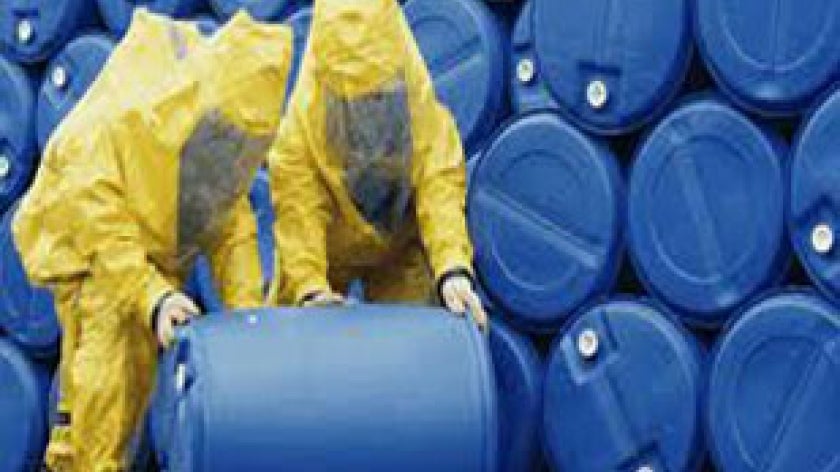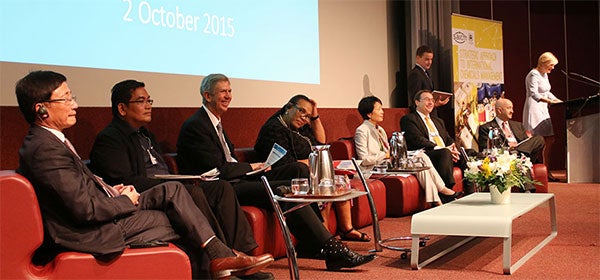

The 4th International Conference on Chemicals Management (ICCM4) ended in Geneva last Friday with a commitment to step up action to safeguard people and the environment from the risk posed by inadequately managed chemicals.
According to UNEP of the estimated 100,000+ chemicals on the market today, only a fraction has been thoroughly evaluated to determine their effects on human health and the environment.
The ICCM is the governing body of the Strategic Approach to International Chemicals Management (SAICM) - a policy framework to promote chemical safety around the world. SAICM brings together multiple sectors and stakeholders to address chemicals and waste issues that are not already within the scope of legally binding agreements.
Addressing the meeting, Naoko Ishii, Global Environment Facility CEO and Chairperson, expressed the GEF’s commitment to promote SAICM’s integrated approach.
Discussing two key messages from the recent adoption of the Sustainable Development Goals, Ishii said, “harm to the environment is harm to humanity” and “sustainable development needs a holistic, comprehensive and integrated approach.”
Sitting alongside UNEP Executive Director, Achim Steiner, she illustrated several GEF projects in different regions that use multi-stakeholder approaches, including Minamata Convention implementation, phase-out of hazardous chemicals in products, green chemistry, and food security.
ICCM4 concluded with a commitment to invest in efforts to prevent deaths and illnesses by assuring sound chemicals management throughout their life cycle by 2020.
Achieving that goal, UNEP said, would be a milestone toward realizing the historic 2030 Sustainable Development Agenda adopted by 193 countries, and containing goals on human health and well-being, food security, sustainable consumption and production, and water and sanitation - all issues directly affected by chemicals.
SAICM has as its overall objective the achievement of the sound management of chemicals throughout their life cycle so that, by 2020, chemicals are produced and used in ways that minimize significant adverse impacts on human health and the environment.
This "2020 goal" was adopted by the World Summit on Sustainable Development in 2002 as part of the Johannesburg Plan of Implementation. Objectives are grouped under five themes: risk reduction; knowledge and information; governance; capacity-building and technical cooperation; and illegal international traffic.